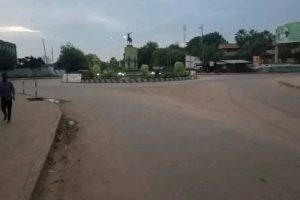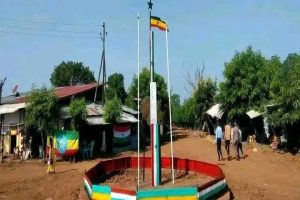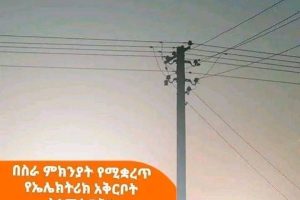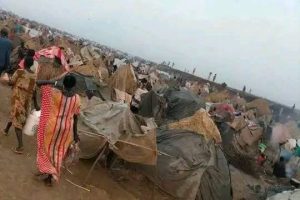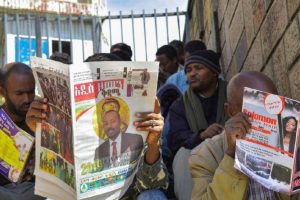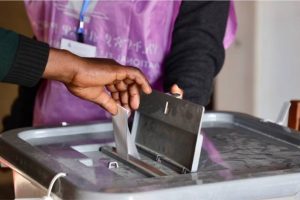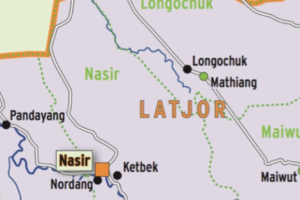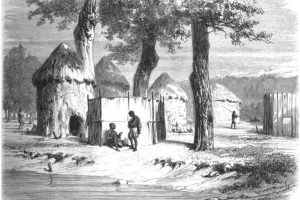Ethiopia is one of the largest African countries in size and in terms of population that in a recently past witnessed relatively peaceful political atmosphere and substantial or promising economics and development growth in the region.
This growth of Ethiopian state achieved in the past two or three decades by the EPRDF leadership (under TPLF political dominance and influence) that claims its fast steady on double-digit growth has turned the today empire or pseudo-federal Ethiopian state not only to be one of the world faster growing developmental state in orientation but also the regional political center and peace architecture in the IGAD member countries, AU and beyond, especially on the interests of peace keeping and mediation in South Sudan, Somalia, etc to mention few.
However, Ethiopia has slipped into conflict on November 4, 2020 that the warring parties in military confrontation – the TPLF and PP (Prosperity Party – three members of the EPRDF coalition party transformed into new ruling party by Dr Abiy in 2019).
Although the cause of the conflict is not the main objective to be discussed here, the disintegration of the ruling party, the EPRDF, that pushed one of the former member and masterminds, the TPLF, into opposition is one of the fundamental causes of the Ethiopian political crisis to be mention.
From day one, regional bodies and international community have raised voices on call for de-escalation of the conflict and urged the warring parties to device possible means for peaceful political solution. As Ethiopian elites seem to have failed to stop the conflict that unquestionably leading to human right abuse (sometimes raised into ethnic cleansing scale), havoc, and feared humanitarian crisis in the region contextually sieged by high political uncertainty (i.e. Ethiopia, Uganda, and Kenya heading to highly contested elections, and South Sudan, Somalia, and Eritrea on the verge of fragile peace) and COVID – 19 pandemic.
Others raised their flags high for mediation to resolve the conflict. But these calls seem to have got deaf ears from both sides as there is no one who officially declares its readiness to come to negotiation table (including the Noble Peace Price winner Dr. Abiy Ahmed).
The reason of silence seems to be very unclear and logically non-understandable to many peace lovers and peace makers within the Ethiopian state and beyond. However, the answer of this equation is simple, the fear for consequence(s) of the mediation.
In existing Ethiopian political context, the mediation is feared to blow-up the underground bomb of ideologies and political movement that has been buried through political oppression of EPRDF. Article 39 of the Ethiopian Constitution is one the much contested articles that remained intact by all means of oppression but not political consensus.
To my understanding, if the Prime Minister Abiy have chosen to appraise and welcome the mediation that his government actually openly resist, Ethiopian political crises can shift and transformed into next level with the following possible consequences regardless of who will be the chief mediator or supervisor.
First, the leading demand from the TPLF is very clear and obvious. Immediately up on call for ending hostilities in the Northern regions, then TPLF will no alternative tabled the secessionist agenda in raising flag(s) for independence if mediation is about to take place before the comparative winners of the war.
Then, more separatist movements including OLF (whose theirs causes has been buried for decades can resuscitate) can emerge in couple of days or weeks to join the negotiation table peacefully or by officially declaring war against the Abiy government. It seems mediation option in this stage can only happen if Abiy Ahmed is preparing for his peaceful exit and resign.
Secondly, if mediation is triggered or imposed on Ethiopian existing political or conflict situation by any means, and Abiy made compromise to swallow the bitter wine. Nationalist within the government and beyond could possibly emerge from nowhere to depose or topple Abiy Ahmed’s government.
This scenario can surprisingly scale the existing conflict into new phase where the region and global peace actors would be floating in the sea with blurred negotiation agenda. I believe Abiy Ahmed already has some doubt in his mine on this regard.
The third possible consequence if the worst happen is the ultimate disintegration of the today Ethiopian empire or Balkanization of Ethiopian state into several countries that will end up in much prolonged border and territorial conflict amongst the new nations.
This scenario would be possibly spearheaded by TPLF, OLF, ONLF, GPLM, etc leading the exist ten regional states or constituencies into Republic of Tigray, Republic of Oromia, Islamic Republic of Somalia, Republic of Gambella, Republic of Sidamo, Peoples’ Republic of Southern Ethiopia, and Republic of Amhara. Today Afar regional state may opt to join in confederation with Eritrea or Djibouti in whole or parts. Benishangul may possible claims independence or else join in the confederation with Amhara or Republic of Sudan.
At last but not less, would be the question of Harrari regional state that may opt to join Somalis newly established Islamic state or Oromia. The two administration regions, Dire Dewa and Addis Ababa, would be incorporated into Republic of Oromia.
With all these possible consequences in vein of Ethiopian politics, the Noble Peace Prize Abiy Ahmed or PP (Prosperity Party) government will not be ready for negotiation with TPLF shortly before winning the war that he branded as ‘Law Enforcement Operation or Offensive’ or LEO in my own term.
And if the TPLF won the comparative advantage that is of course less likely, then New Empire will be built on Confederation by existing regional states or more with TPLF cadres’ governorship in all confederated states through time and Republic of Tigray will be at last be declared leaving the remaining part of the empire with its own mess.
The author: Luke K. Yiech, a student in Peace and Security Studies. He can be reached at: kh*******@***il.com
The Views on the article are solely of the writer.



